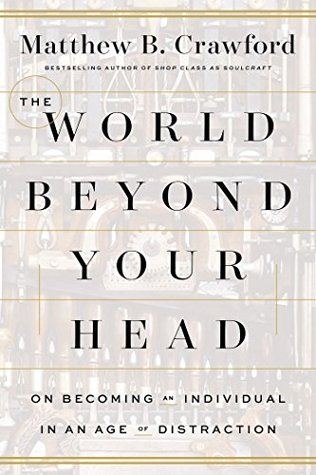These two ways of knowing about speed “are taken up in very different, sometimes competing, cognitive orientations to the world,” as Cussins puts it. When the objective representation of speed interposes itself between the motorcyclist and his perception of his situation, it can interfere with his direct world-inhabiting. Cussins writes that “the great advantage of experiential content is that its links to action are direct, and do not need to be mediated by time-consuming—and activity-distancing—inferential work.”
Welcome back. Just a moment while we sign you in to your Goodreads account.


